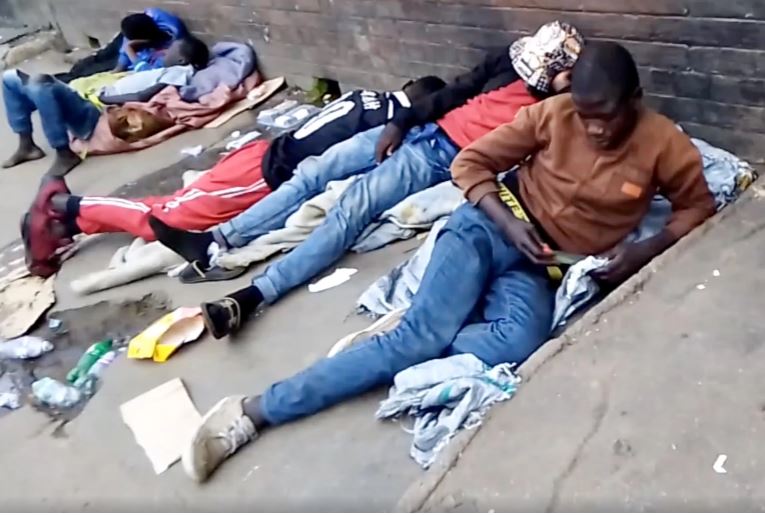
In Kuwadzana, a high-density residential suburb in the Zimbabwean capital, Harare, the day begins as early as 5am for many of the working class – from vegetable sellers to bus conductors, like 19-year-old Thomas Gundawo*.
For loading a seven-seater vehicle after soliciting passengers at the top of his voice at the bus stop, Gundawo gets ZWL$100 ($0.45). By 8am, he would have pocketed only about $3, insufficient to buy food and either broncleer – a street drug mixture of cough syrup with alcohol and codeine – or dagga (marijuana).
So, he and his friends have resorted to a far cheaper alternative – adding water to the white residue found in used diapers and boiling it.
“After boiling, it forms a greyish substance and we drink the mixture,” Gundawo told Al Jazeera. “It’s semi-solid, it smells and tastes bad but we just drink. It helps us to get high [at] less cost.
“I need a little drink in the morning to have energy and confidence as I attract passengers,” said the teenager who has been abusing drugs since his third year in high school – six years ago.

Since October 2018, the Zimbabwean economy has been on a free-fall characterised by high inflation and low investor confidence, leading to high levels of unemployment as the local currency plummeted in value.
Data is not readily available in Zimbabwe but sources from the country’s Ministry of Higher and Tertiary Education told Al Jazeera that more than 25,000 students graduate annually from the country’s universities and other institutions of higher learning.
But unemployment is also prevalent and the pool of the jobless swells every year.